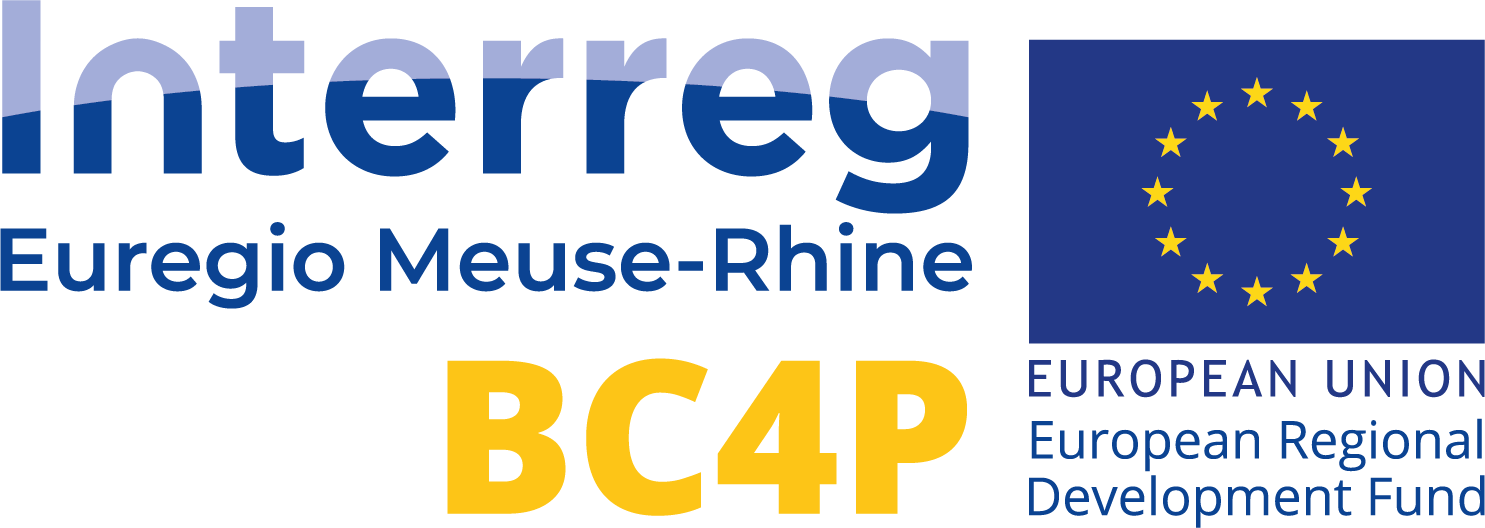Project information
The project name “Blockchain4Prosumers” links two core statements and goals of the Interreg EMR project. On the one hand the “Blockchain” technology and on the other hand “Prosumer”. The blockchain makes it possible to make locally generated energy available via trading platforms or directly to other consumers and users. One of the most media-effective potential applications of the Blokchain in the energy industry is the so-called Peer-2-Peer trade. This is to be understood as an energy market in which producers such as homeowners with solar systems on the roof and consumers (industry but also household customers) can meet directly, i.e. without intermediaries in the form of energy stock exchanges, energy supply companies or energy traders, and trade with each other. These are households that produce their own electricity, so-called prosumers. Consumers and producers at the same time. The blockchain also enables an automated and decentralised handling of charging processes for electrical cars through smart contracts. The reason for this development is the increasingly small-scale transactions such as the sale of electricity to an electric car from a supermarket, for example, or the large number of small energy producers by using solar energy. Several hundred thousand in the Euregio Maas Rhine alone. The prerequisite for this integration of many small loading processes and transactions between buyer and seller is a correspondingly designed standardized communication channel. Standardization must take into account data formats, business processes and communication protocols. Many databases are centralized and only have limited access for a certain number of users.
Blockchain is essentially different: it is decentralized and open to the community. It is not owned by a single organization or enterprise. All participants in this open network are in fact in possession of the data and all transactions are transparent. In addition to new business models for municipal utilities and prosumers that can merge to form energy cooperatives, blockchain technology offers a unique allocation of the energy generated and consumed, be it solar power from the roof, the electric car or heating. This increases the acceptance of renewable energies and grid expansion costs can be reduced if feed-in and consumption are in a better balance. Blockchain4Prosumers is divided into several work packages. Work package T1 develops the necessary framework and describes the possible business models and services for the different applications. Work packages T2 and T3 develop the core technology of the decentralised database as well as the interfaces to the smart meters and the user interfaces and applications. The jointly developed technology will finally be demonstrated in the pilots in work package T4 in different application cases. All pilots will be located in different regions (Hasselt/Diepenbeek, Liège, Heerlen, Jülich and Eupen) and with different technology focus (solar energy trading, mobility and charging, exchange of solar and heat pumps and low-temperature networks), but the core technology and thus the blockchain will be the same in all pilots. This can ultimately lead to further harmonisation and standardisation of the energy landscape between regions and countries. The EMR is an appropriate region to demonstrate these technologies: It has the infrastructure (electricity grids, a unique frontrunner 5GDHC thermal smart grid in Heerlen and enough decentralised generators), the knowledge (institutions and universities), many companies (start-ups) and includes several medium-sized densely populated cities as well as small towns and villages with many inhabitants (potential target group). Through work package T5: Recommendations and workpackage Communication the results are communicated to SMEs and municipalities in the EMR region itself, but also outside the EMR. In addition, educational organisations in the EMR can benefit from the results that can be used in the renewal of their curricula. The concrete results of Blockchain4Prosumers will be:
- Development of an innovative key blockchain technology for a secure innovative energy market using renewable energies;
- Expanding market opportunities for blockchain and energy system transformation for SMEs in the Euregio;
- Creation of new jobs in the craft trades (installation of equipment), IT and energy sectors;
- Strengthening the innovative power of start-ups in the EMR;
- Accelerating and increasing the acceptance of energy system transformation in the EMR;
- Strengthening of existing EMR knowledge infrastructures and development of new fields of knowledge;
- Positioning as an innovation landscape in digitisation with simultaneous harmonisation and standardisation between the regions.
